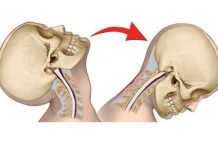Christine Hughes, Yalda Davoodi-Semiromi, James C Colee, Tyler Culpepper,
Wendy J Dahl, Volker Mai, Mary C Christman, and Bobbi Langkamp-Henken
Departments of Food Science and Human Nutrition,
University of Florida,
Gainesville, FL 32611-0370, USA.
BACKGROUND: Acute psychological stress induced by academic exams is associated with dysregulated gastrointestinal and immune function.
OBJECTIVE: We examined whether supplementation with galactooligosaccharides reduced gastrointestinal dysfunction and the percentage of days with cold or flu in academically stressed undergraduate students.
DESIGN: In a randomized, double-blind study, subjects (n = 427) received 0, 2.5, or 5.0 g galactooligosaccharides for 8 wk around the time of fall final exams. Levels of stress and cold or flu symptom intensity (SI; 0 = not experiencing to 3 = severe) were recorded daily. The SI from 9 cold or flu symptoms was summed with 1 d of cold or flu defined as a sum >6. The Gastrointestinal Symptom Response Scale was completed weekly.
RESULTS: Stress was positively related to diarrhea, indigestion, and reflux syndromes and with abdominal pain, average daily cold or flu SI score, and the percentage of days with cold or flu. Gastrointestinal symptom scores for diarrhea (P = 0.0298), constipation (P = 0.0342), abdominal pain (P = 0.0058), and indigestion (P = 0.0003) syndromes were lower after galactooligosaccharide supplementation. The cold or flu SI score was affected by galactooligosaccharides and stress (P < 0.0001); 2.5 g was associated with a lower SI score across all levels of stress, but 5.0 g was protective only at lower levels of stress. The percentage of days with cold or flu was associated with galactooligosaccharides within different body mass index categories (P = 0.0002), wherein a 40% reduction in the percentage of days with cold or flu was observed in normal-weight individuals with 5.0 g galactooligosaccharides. This effect was not observed in overweight or obese individuals.
CONCLUSIONS: Acute psychological stress was directly related to symptoms of gastrointestinal dysfunction and cold or flu. Galactooligosaccharide supplementation reduced these symptoms and the number of days with cold or flu.
From the Full-Text Article:
INTRODUCTION
Acute upper respiratory illnesses are common in college students. Over a 6-mo period including the winter months, 80–90% of students recorded =1 d of cold/flu symptoms, 22% reported at least one health care visit, 41% missed =1 d of class, and 28% self-reported that they did poorly on an exam because of an upper respiratory illnesses [1, 2]. In another study, students followed for 8 wk around the time of fall final exams were more likely to report a cold (ie, =2 cold symptoms on =2 d) when they had higher average stress levels in the prior 3 d [3].
Acute psychological stress, such as that induced by academic exams, is associated with dysregulated immune and gastrointestinal function [4–6]. Classic studies showed a reduction in cellular immunity in first-year medical students undergoing academic exams [7, 8]. Activity of natural killer cells, one of the front-line defenses against viral infections, was reduced during exams, and those students who scored higher for stressful life events had lower natural killer cell activity [7]. Cytokine production was also associated with acute psychological stress, ie, increased interleukin (IL)-6 and IL-10 and decreased interferon-? with increased stress [4]. In addition to the changes in immune function, academic stress is associated with increased cortisol production, abdominal pain, and a disruption of the intestinal microbiota, which result in lower viable lactic acid bacteria counts [5, 6].
Psychological stress can modulate the gastrointestinal and immune systems through the hypothalamus-pituitary-adrenal (HPA) axis. Glucocorticoids (eg, cortisol), which play a key role in the HPA, are likely responsible for the observed changes in natural killer cell function, dysfunction of the gastrointestinal tract, and altered microbiota [6, 9]. Recently, the concept of the brain-gut-enteric microbiota axis was introduced, which suggests bidirectional communication between the gastrointestinal tract and brain with input from the enteric microbiota [10]. Another model in which cortisol may be driving changes in immune function and enteric microbiota is that of immunosenescence [11]. Vulevic et al [12] supplemented the diets of older adults with a prebiotic, galactooligosaccharides, and observed increased numbers of beneficial bacteria (ie, bifidobacteria), decreased production of IL-6, and increased natural killer cell activity. With these concepts in mind, we were interested in determining whether galactooligosaccharide supplementation would reduce gastrointestinal dysfunction and the percentage of days of cold/flu in university students undergoing academic stress. If successful, such an intervention may help reduce personal, academic, and financial costs associated with cold or flu viruses.
DISCUSSION
This study provides new information on the benefit of galactooligosaccharides on gastrointestinal and immune health outcomes in apparently healthy young adults undergoing an academic stress. As anticipated, in the 8 wk before, during, and after fall final exams, university undergraduates self-reported daily stress that was positively related to gastrointestinal symptoms, cold/flu symptom intensity, and the percentage of days with cold/flu. Galactooligosaccharide supplementation modulated all of these symptoms. The dose of 2.5-g galactooligosaccharides was more effective than the 5.0-g dose at reducing symptoms associated with abdominal pain (ie, abdominal pain, hunger pains, and nausea) and indigestion syndrome (ie, rumbling, bloating, burping, and gas). This is of interest to note considering that galactooligosaccharides are fermented by the intestinal microbiota, which results in gas production [17]. The higher dose of galactooligosaccharides (5.0 g) yielded a lower indigestion syndrome score than did the placebo (0 g) (Table 2). Although 2.5 g galactooligosaccharides was associated with slightly improved stool consistency, 5.0 g galactooligosaccharides was associated with the decreased likelihood of constipation syndrome.
To our knowledge this was the first study to show a benefit of galactooligosaccharides, a prebiotic, on modulating stress-induced gastrointestinal dysfunction in adults. Previously, Diop et al [18] showed a protective effect of a probiotic mix containing Lactobacillus acidophilus and Bifodobacterium longum on stress-induced gastrointestinal symptoms. In that 3-mo study, adults aged 18–60 y who were affected daily by symptoms of stress reported significantly less nausea and vomiting and abdominal pain with the probiotic than with the placebo. The authors suggested that the effects on the residual intestinal microbiota, intestinal barrier, and immune system may have modulated these symptoms [18]. In our study, galactooligosaccharides may have worked through similar mechanisms or through the HPA axis [6, 9, 10]. Galactooligosaccharide intake was previously shown to increase the numbers of bifidobacteria and lactobacilli [12, 19] as well as fecal short-chain fatty acids, which have been associated with decreased epithelial permeability [17, 20].
It is possible that gastrointestinal symptoms actually contributed to the reported level of stress. If this were the case, it may help to explain why 5.0 g galactooligosaccharides lost effectiveness at increased levels of stress (Figure 2). At lower levels of stress 5.0 g galactooligosaccharides was associated with lower average cold/flu SI, but this protective effect was lost at higher levels of stress. The 5.0-g dose of galactooligosaccharides was not as effective as the 2.5-g dose at reducing abdominal pain (Table 2). It could be that abdominal pain contributed to overall stress and ultimately to the risk of cold/flu symptoms.
In healthy-weight individuals, supplementation with 5.0 g galactooligosaccharides reduced the average percentage of days of cold/flu (Figure 3). This protective effect was not seen in underweight, overweight, and obese individuals. It should be noted that because 64% of the subjects fell within the healthy-weight category, we are most certain about these data. Additionally, emerging evidence points to differences in microbiota, including fewer bifidobacteria in obese than in lean individuals [21–23]. If galactooligosaccharides improved gastrointestinal and immune function by changing the microbiota, then it is possible that we would observe different effects in individuals within different BMI categories.
This study is one of the first to show a protective effect of galactooligosaccharides in relation to the percentage of days with cold/flu; however, many limitations need to be addressed. Academic stress was used as a model of acute psychological stress; although students only reported an average daily stress of 3 on the 10-point scale, with a high of 5 during exam week. Populations with higher levels of stress may experience more severe gastrointestinal and immune dysregulation. With a greater degree of daily stress, the galactooligosaccharide-associated health benefits may have been observed with a smaller sample size or, alternatively, may not have been observed to the same degree. Another limitation is in how we defined a day of cold/flu (ie, SI sum of >6 or a minimum of 3 different symptoms of more than minimal intensity). Although this is a fairly conservative definition compared with that used in other studies [1, 24, 25], we did not confirm the presence of cold/flu-associated pathogens. It was advantageous to report the percentage of days with cold/flu rather than the incidence and duration, because it is difficult to determine when one cold ends and a new cold begins. Another potential limitation is the use of Internet-based questionnaires in place of traditional paper questionnaires. Although student responses to the Internet version of the questionnaires were not compared with those to the traditional paper version, these comparisons were made with other questionnaires. Ritter et al [26] compared the distribution of responses from 16 different health-related instruments administered online with traditional mailed paper questionnaires. In every case, the Internet-based instrument appeared to be reliable, and Internet participation in the study was as good if not better than that of the traditional method [26]. For the undergraduate students in our study, the convenience of completing questionnaires online and the ability of the investigators to follow subject compliance in real time likely contributed to the high compliance rate.
In summary, acute psychological stress, such as that associated with academic exams, was directly related to symptoms of gastrointestinal dysfunction and cold/flu. Galactooligosaccharide supplementation attenuated these symptoms. Future studies should determine the mechanisms by which galactooligosaccharides improve health outcomes within the brain-gut-enteric microbiota axis, because these findings may have wide applicability beyond academic stress.







